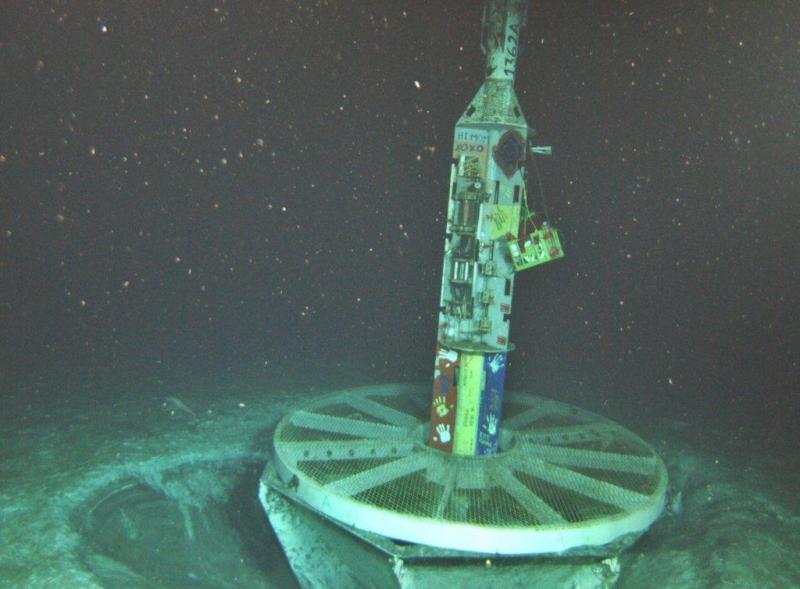Bigelow Senior Research Scientist Dr. Beth Orcutt and John Skutnik, a research technician from her Deep Biosphere Laboratory are departing East Boothbay on a two-week oceanographic expedition, from July 13 through July 26, to study microbial life below the seafloor of the Pacific Ocean.
They are members of a multi-institutional scientific crew on board the R/V Atlantis, leaving from Astoria, Ore., for the flank of the Juan de Fuca Ridge in the northeastern Pacific, off the coasts of Washington and British Columbia.
Orcutt and Skutnik will use Jason II, a state-of-the-art, remotely operated vehicle, to collect samples from subsurface borehole observatories that were built into the ocean floor during earlier voyages. The observatories, called CORKS, provide information about the hydrology of the sub-seafloor and house Orcutt’s microbiology experiments to study life in the crustal subsurface.
The researchers will be working around the clock to collect incubation experiments and fluid samples from deep within the ocean crust, samples that contain unique microscopic organisms that "breathe" minerals found in the rocks below the seafloor.
Orcutt is investigating how these microbes are able to live in this environment, and how their microscopic life has global impacts on the cycling of critically important elements such as carbon.
“We hardly know anything about the ‘deep biosphere’ below the ocean floor, but this is the largest habitat there is on our planet,” says Orcutt. “There might be 30 to 70 times more microbes living under the seafloor than there are floating around in the surface of the ocean, or living in the soil on land.
“Considering how important surface marine microbes are to global biogeochemical cycles – including production of oxygen and regulation of carbon dioxide – the marine microbes living deep in ocean sediments, in the oceanic crust, and in underwater hydrothermal vents may also be playing a key role in the way our planet works.”
During the expedition, live broadcasts from the ship and the ROV Jason’s camera on the seafloor will be streamed at explorationnow.org/atlantis, in collaboration with the University of Rhode Island's Interspace Center.
The crew, which includes several teachers, is also available for live interviews from the ship with groups across the country. Requests for interviews can be made through the explorationnow.org/atlantis website.
Editor's note: During the expedition, Dr. Orcutt may be contacted at borcutt@bigelow.org; follow her on Twitter at @deepmicrobe.






























.png)
.png)
